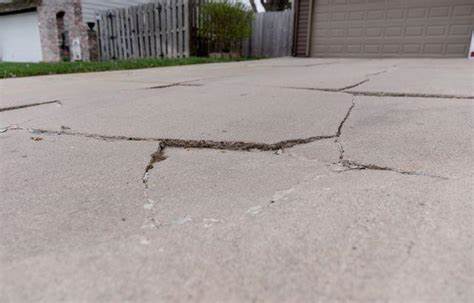How To Assess The Damage In Concrete Driveway In Escondido?

- Begin by conducting a thorough visual inspection of your concrete driveway. Look for cracks, spalling (flaking or chipping), discoloration, or uneven surfaces. Pay attention to areas where water may pool, as this can indicate underlying issues with drainage. Take note of the size and extent of any damage to determine the severity of the problem.
- Cracks in concrete driveways are common and can develop due to various reasons such as freeze-thaw cycles, settling of the ground, or heavy loads. Assess the width and depth of the cracks. Hairline cracks may not require immediate attention but should be monitored closely. However, larger cracks, especially those wider than a quarter-inch, may indicate structural issues that need to be addressed promptly to prevent further damage.
- Walk or drive over different sections of your driveway to test for stability. Pay attention to any areas that feel uneven or hollow beneath your feet or tires. These could be signs of underlying problems such as soil erosion or inadequate compaction during installation. Additionally, tapping the surface with a mallet can help identify areas where the concrete may have delaminated or become detached from the subbase.
- Proper drainage is essential for maintaining the integrity of your concrete driveway. Look for signs of standing water or puddles, especially after rain. Poor drainage can lead to erosion of the subbase, which can compromise the stability of the driveway over time. Addressing drainage issues promptly can help prevent further damage and prolong the lifespan of your driveway.
- If you’re unsure about the extent of damage or how to address certain issues, consider seeking the expertise of a professional contractor specializing in concrete repair and maintenance. A professional inspection can provide valuable insights and recommendations tailored to your specific situation, ensuring that any damage is addressed effectively.
FAQs
Can I Repair Cracks In My Concrete Driveway Myself?
Yes, minor cracks can often be repaired using DIY concrete repair kits available at hardware stores. However, for larger cracks or structural issues, it’s best to consult with a professional contractor to ensure proper repair and prevent further damage.
How Long Does A Concrete Driveway Typically Last?
With proper maintenance, a concrete driveway can last anywhere from 20 to 30 years or more. Factors such as climate, usage, and maintenance practices can influence its lifespan.
What Can I Do To Prevent Damage To My Concrete Driveway?
Regular maintenance is key to preventing damage to your concrete driveway. This includes sealing the surface every few years, addressing cracks promptly, ensuring proper drainage, and avoiding heavy loads or abrasive chemicals.
Conclusion
Assessing the damage in your concrete driveway is essential for maintaining its longevity and structural integrity. By following these tips and addressing issues promptly, you can prevent minor problems from escalating into costly repairs. Remember to consult with a professional if you’re unsure about the extent of damage or how to proceed with repairs. With proper maintenance and care, your concrete driveway can continue to serve you well for years to come. For more information, contact Concrete Contractor Escondido at (760) 993-3343.